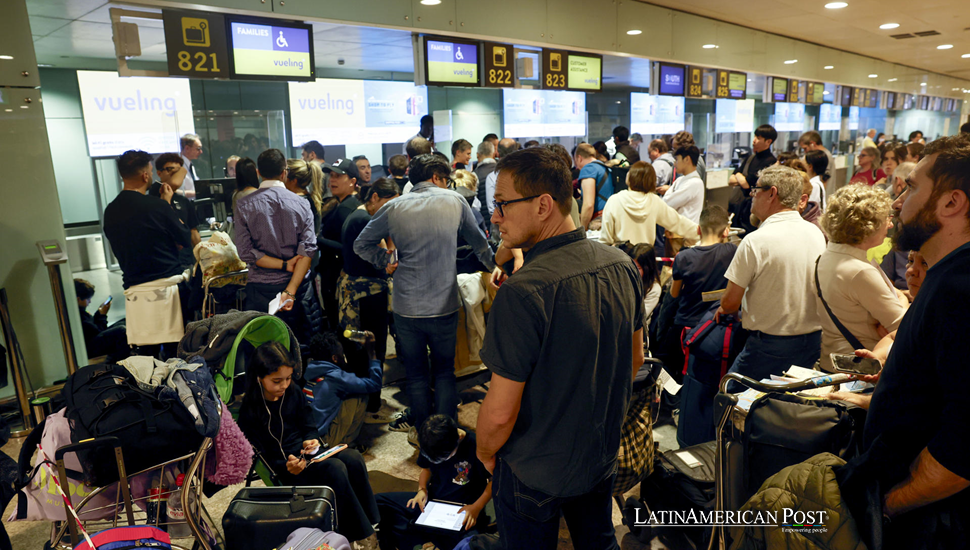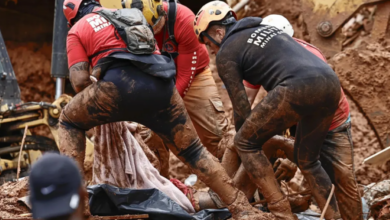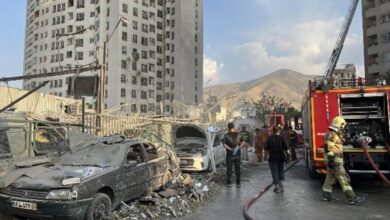Airlines Halt Flights Amid Gunfire Attacks in Haiti

In the wake of a gunfire attack on a Spirit Airlines flight, several airlines have made the urgent decision to suspend services to Haiti. The escalating violence and security concerns, now extending to the skies, underscore the critical need for stability and international cooperation in Haiti.
Airlines Respond to Growing Safety Concerns
Haiti’s ongoing security crisis has now spread to the skies, forcing several major airlines to suspend flights to the country following a dramatic and terrifying incident. Spirit Airlines Flight 951, on its way from Fort Lauderdale, was struck by gunfire while attempting to land at Port-au-Prince’s Toussaint Louverture International Airport. The plane, forced to divert, safely landed in the Dominican Republic, though the attack left a significant mark on the airline and Haiti’s fragile aviation industry.
The flight crew sustained only minor injuries; happily, no passengers were harmed. Nevertheless, the bullet damage — later verified when a police team inspected the bus in Santiago — indicates how perilous circumstances have grown for travelers. It was the second such incident involving flights over the Haitian capital in three weeks and highlights expanding risks to aviation for a beleaguered nation facing political and economic meltdown.
In response, Spirit Airlines suspended its flights to Haiti indefinitely, with American Airlines and JetBlue following suit, halting their services. The flight groundings are not just a business reaction to an impending threat; they are emblematic of the worsening situation in Haiti, where gangs have held vast parts of the country for the past few years and where authorities have lost effective control. This is where the rule of law becomes essential–not just for safe and secure travel but also indicative of a way to dress up shoddy governance that has made enforcing accountability much more difficult.
These flight suspensions not only underscore the deep impact of violence on Haiti’s economy but also its international connectivity. With air travel being a key link to the outside world, the lack of reliable transportation to and from the country poses a significant risk of isolation from the global economy. While the international community is beginning to take notice, real solutions will require more than flight suspensions; they will necessitate international cooperation and meaningful reforms on the ground.
Spiraling Violence and Political Instability
The timing of the gunmen firing on the Spirit Airlines flight is also tragic: just two days after the Haitian new prime minister, Alix Didier Fils-Aimé, became president. Put in charge in an age of crisis, Fils-Aimé’s job description is straightforward: secure and rebuild the country. But with the gangs in power and the state of the government weakening, his mission is becoming even harder.
What Fils-Aimé says he will “restore security” completely differs from what’s happening in the field. Gangs, which govern most of Port-au-Prince and the rest of the country, only got bolder. These organized criminal groups now flourish, abducting, extorting, and murderously engaging in partisan wars, terrorizing the citizenry. They don’t only kill on the street but also intimidate and occupy infrastructure like airports and ports vital to international trade and humanitarian aid.
With the gangs holding such power, the UN-backed police mission, which was deployed in an attempt to stabilize the country, has struggled to make a significant impact. While the international policing force—led by Kenyan officers—has had some success in certain areas, it is clear that the political will to address the root causes of violence and corruption is lacking. A combination of an overlapping, coherent strategy from the Haitian authorities and foreign aid partners could not progress, and the country could not restore order or safeguard its citizens.
The flight interruptions are only one part of the bigger picture: Haiti is at a juncture. If things only get worse, social and economic collapse is imminent. The violence does not just threaten the safety of civilians; it destabilizes the very foundation of Haiti’s international relationships, including business, aid, and tourism. Thus, the situation is not just a security challenge—it is an economic one that threatens to undo any progress the country has made in recent years.
The Impact on Haiti’s Economy and International Connectivity
Haiti’s reliance on external sources of income—tourism, remittances, and international aid—has long been one of the country’s economic lifelines. However, with escalating violence making it harder for airlines to operate, the country risks becoming further isolated from the global economy. The suspension of flights is a severe hit to Haiti’s already vulnerable economy for business leaders, workers, and citizens who have become a key means by which they stay connected through air transport.
Spirit Airlines, which once offered cheap flights between Haiti and the US, has had to shut down due to safety concerns. Spirit’s decision and American Airlines and JetBlue’s suspensions are immediate disruptors for Haitians in the US who fly to see relatives or do business. Without much travel, people who need medical treatment, education, or other services in the US cannot get anywhere.
The loss of frequent air travel is a crisis for commercial enterprises in Haiti. Global trade—especially those imports and exports that rely on efficient air travel—risks disruption even more. Aid, which often relies on air travel, will be delayed or diverted, too, with the many vulnerable Haitian people who are dependent on foreign help. While the country attempts to tackle its internal crises, it is left with regional instability and worsening global relations.
This disruption has global impacts on a larger scale. Runway reports that airlines and companies with assets in the country will have to consider whether it’s a viable place to keep operating when security is so tenuous. Any continued violence will turn Haiti into an economic black hole, unable to trade or attract investment as the original pre-requisite of safe travel will not exist.
Regional Cooperation and International Aid
Haiti is at a critical juncture, and it’s clear that the country needs international collaboration and assistance more than ever. As the crisis deepens, a comprehensive response that involves stronger security measures and regional cooperation is essential to bring short-term relief and stability. Prime Minister Fils-Aimé’s commitment to tackling the violence is commendable, but he cannot do it alone.
Local neighbors and the international community need to collaborate to provide the help they need. Caribbean and Latin American countries and international actors would need to pool their resources, know-how, and political will to bring Haiti back to stability. Regional cooperation could include joint security initiatives, collaborative infrastructure projects, and coordinated responses to humanitarian needs.
At the same time, the private sector—within Haiti and abroad—needs to step up its investment in infrastructure and services. Businesses, including international companies with a stake in Haiti, must work alongside government and non-governmental organizations to restore the country’s economic backbone. The private sector can also help revive tourism, technology, and agriculture, which Haiti once relied upon but are now stunted due to the insecurity.
Beyond security, Haiti needs to improve its internal governance and law enforcement. Strengthening the rule of law and establishing more effective social programs to reduce the influence of gangs are critical steps in ensuring long-term peace and stability. Only when the public can trust their government and institutions to protect their rights will the country be able to begin rebuilding itself from the inside out.
The Long Road to Recovery
Spirit Airlines Flight 951 attack speaks to the state of Haiti as never before. Several airlines suspending flights puts the nation’s future on the map of safety and its broader economic implications. It needs immediate action by the Haitian government and international community and coordinated action to reestablish peace, rebuild infrastructure, and reintegrate Haiti into the world economy.
The road to recovery is not easy, but it is not impossible. Haiti will rehabilitate itself if we commit to immediate measures and longer-term reforms. International and private partners will have to come in and do a lot of work, but the domestic effort to occupy the country and run it will be fruitless without it.
Also read: Huachipato’s Closure and Chile’s Steel Industry Future
Haiti has a long road ahead, but through solidarity, cooperation, and focused leadership, the country can begin to reverse the downward spiral of violence and economic instability. The world is watching, and the time for change is now. Haiti’s path to recovery starts with renewed commitment and international solidarity—factors that will ultimately determine whether the country can overcome this crisis and reestablish itself as a key player on the global stage.





